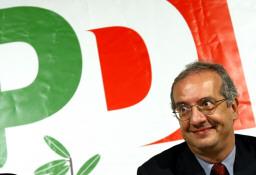The government's moves since taking office last month are ruining a post-electoral climate of goodwill established with the opposition, centre-left leader Walter Veltroni warned on Monday.
''We'll see what this legislature will bring us over the next few days: if the government's intentions are in tune with what it has accomplished so far, the climate will change,'' said Veltroni.
The opposition leader is under flak from some of his own allies for a promise to agree to bipartisan dialogue on major issues, including a reform of the country's electoral system.
But Veltroni said he was ''surprised and upset by the arrogance with which some measures have been surreptitiously introduced'' by the centre-right government.
He singled out the government's bill on reform of wiretapping laws, the Northern League's anti-European Union stance and a bill which would again save one of Premier Silvio Berlusconi's channels from switching to satellite broadcasting.
The Berlusconi-owned Rete 4 channel - accused of occupying the frequencies of another private network - has never switched to satellite broadcasting as it had been required to do by a 1997 law on media pluralism and by a subsequent Constitutional Court ruling.
A media reform law passed by the Berlusconi government in 2004 enabled Rete 4 to continue broadcasting.
But in January, the European Court of Justice ruled that the way television broadcasting frequencies have been distributed in Italy breached European Union law.
European judges said that a succession of legislation regulating the country's television sector had effectively favoured existing broadcasters, barring access to would-be competitors.
Veltroni also rapped a proposed bill which would freeze some trials, including two cases involving the premier and British corporate lawyer David Mills, the estranged husband of Britain's Minister for the Olympics Tessa Jowell, on charges of perjury and tax evasion.
The government's attitude, Veltroni said, ''doesn't show a willingness to create a positive climate and,in my view, this a mistake''.
Opposition Senate Whip Anna Finocchiaro agreed, stressing that the centre right ''claims it wants to negotiate whereas in fact they've gone back to their old ways''.
The head of the opposition Italy of Values party Antonio Di Pietro, a former prosecutor in Milan's 'Clean Hands' probes into political corruption in the early '90's, accused Berlusconi of working to introduce self-serving laws.
He urged the opposition not to seek any sort of negotiation ''with someone who looks after his own interests instead of working for the good of the country''.
Daniele Capezzone, spokesman for Berlusconi's Forza Italia party, rebutted that hard-liners in the centre left were sabotaging Veltroni's efforts to establish better relations with the centre right.
Italian President Giorgio Napolitano says that, for the country's interests, both blocs should seek to negotiate on major issues.
Commenting on the new climate of appeasement in Italian politics, the British weekly The Economist said in its latest issue that Veltroni ''risks being too nice to Berlusconi''.









